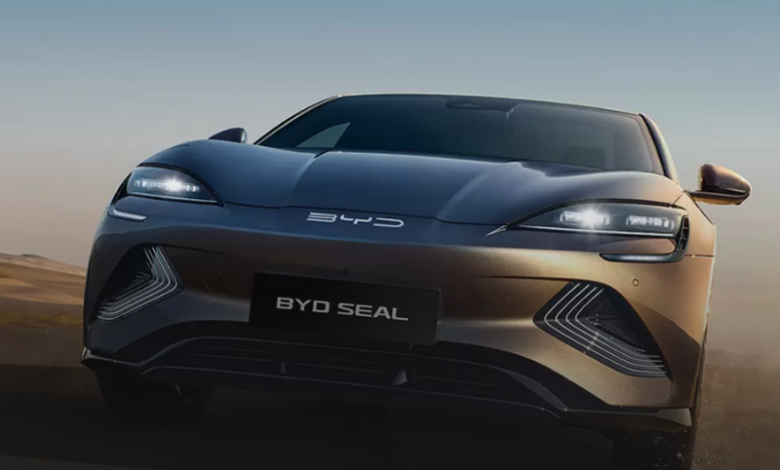Are Stocks of Electric Vehicle Manufacturers Still Worth Investing In?

Once heralded as the next big industry, electric vehicle (EV) companies experienced impressive growth from 2020-2022.
However, the rise of Artificial Intelligence (AI) has shifted investors’ focus, dimming the spotlight once held by EVs.
2024 is turning out to be a tough year for the EV industry.
Heavyweight Tesla (NASDAQ: TSLA) has seen its stock tumble over 28% year to date.
Similarly, China’s EV giant, BYD (SEHK: 1211) experienced a 5% decline over the past year.
Mid-cap EV companies such as Nio (NYSE: NIO) and Rivian (NASDAQ: RIVN) fared even worse, with their stock prices plunging over 40% and 50% year to date, respectively.
Over the same period, the S&P 500 (^SPX) has shot up 12%, significantly outperforming the EV industry.
The underperformance of the EV sector cannot be attributed to an industry trend as legacy automakers have performed well this year.
For example, US automaker General Motors (NYSE: GM) and Japanese car manufacturer Toyota (TYO: 7203) have both seen their stock climb by 22% and 29% year to date, respectively.
What happened this year?
There is no single factor explaining the current downturn in the industry.
A combination of macroeconomic, industry, and consumer factors can offer investors insights into why EV companies are facing such a pessimistic outlook.
Macroeconomically, high interest rates in the US have made financing big-ticket purchases like motor vehicles more challenging.
Similarly, sluggish economies in China and the EU have not helped the EV industry either.
However, despite the high-interest rate environment, US new vehicle sales from January to March this year still rose 5.1% year over year. EVs lagged behind the industry, only seeing a 3.3% year on year increase.
On an industry level, many companies have under-delivered.
Tesla’s automobile sales declined by 13% year on year in the first quarter of 2024 (1Q 2024), while operating expenses increased by over 37%. This has resulted in profits plummeting by more than 50% year on year.
While BYD posted a 5.2% increase in profits year on year for 1Q 2024, profits declined by 47% quarter on quarter, suggesting that price wars with Tesla are hurting its bottom line.
Mid-cap EV companies like Rivian and Nio have still not turned profitable after many years, leaving investors to question the strength of their business models.
Bankruptcies arising from small-cap EV companies such as Arrival (OTCMKTS: ARVLF) and Fisker (OTCMKTS: FSRN) have only made the industry look worse.
Lastly, consumer interest in EVs may be waning.
A study conducted by research firm J.D Power revealed that 24% of respondents are “very likely” to consider purchasing an EV, down from 26% a year ago.
Furthermore, Tesla CEO Elon Musk’s behaviour has not been viewed favourably by consumers. Tesla ranked 8th in America’s 100 most visible brands back in 2021, but has now plunged to 63rd and is lagging many of its competitors.
Outlook for the industry
The industry witnessed a further setback when Tesla recently laid off its Supercharger team back in April.
After all, many EVs globally rely on Tesla’s Supercharger network.
This raises the question: Is the EV space still investible?
While a bearish sentiment currently surrounds the industry, there are some bright spots to look forward to.
Rate cuts in the US and Europe are on the horizon, which could help boost consumer demand.
China, which holds the largest market for EVs, is seeing its economy off to a robust start this year, providing much-needed support for the industry.
Low metal prices are also set to persist throughout 2024, alleviating some of the pain automakers are experiencing.
Innovative technologies are also making a breakthrough, notably in the area of autonomous driving.
For example, Tesla’s Full Self-Driving allows the vehicle to navigate, drive, and park with minimal human intervention. Similarly, Waymo, a subsidiary of Alphabet (NASDAQ: GOOGL), has launched an autonomous ride-hailing service in some US cities.
Going back to the issue regarding Tesla’s Supercharger network, the company is still committed to expanding its network, though at a slower pace.
The US is also prepared to impose a 100% tariff on Chinese EV imports, which could benefit US EV makers.
EVs remain a promising investment opportunity
Here are some companies positioned to benefit from a potential EV resurgence.
BYD
BYD Auto holds the lion’s share in China’s EV market and has surpassed its main rival, Tesla, as the new worldwide leader in EV sales in the final quarter of 2023.
Despite lagging behind the overall market, BYD remains one of the most stable stocks, with its share price gaining 8.7% year to date.
Currently, the automaker is extending its operations in Brazil and Thailand and is exploring new opportunities in countries like Indonesia.
Incoming tariffs are unlikely to impact the company adversely as BYD has strategically chosen emerging markets for its expansion plans.
Lastly, BYD is not just an auto manufacturer; its business spans three other industries, including rail transit, renewable energy, and electronics.
Tesla
Tesla has faced significant challenges in 2024, making it the worst performer among the “Magnificent 7”.
Despite this, investors have something to look for.
The company has achieved a huge breakthrough in autonomous driving, with Nvidia’s (NASDAQ: NVDA) CEO Jensen Huang recognising Tesla as the leader in self-driving technology.
Tesla plans to integrate this technology into a subscription model, aiming to secure a steady stream of revenue and operating cash flow.
Beyond autonomous driving, the company has ventured into other businesses, including humanoid robots and “robotaxis”.
Although the company witnessed softening demand for 1Q 2024 with total deliveries dropping by 9% year on year, Tesla remains committed to accelerating the launch of new models.
An upcoming model is an affordable vehicle, which will likely be a hit in markets such as China and Europe.
Alternatives
Investors may consider waiting for further consolidation in the EV market before committing to investing in EV companies again.
Alternatively, investing indirectly is an option. After all, EV stocks tend to be more volatile.
This can be done by investing in traditional car manufacturers that are also entering the EV space. Some of these companies include GM and Stellantis (NYSE: STLA).
Investing in automobile battery companies is another indirect approach. Notable companies in this sector include Panasonic (TYO: 6752) and CATL (SHE: 300750).
Attention Growth Investors: Our latest report, “The Rise of Titans,” gives you a front-row seat on the 7 most influential US stocks today. If you’re passionate about tech and growth, you can’t go wrong with our research. Downloading this FREE report could be the most strategic move you make this year. Click here to get started now.
Follow us on Facebook and Telegram for the latest investing news and analyses!
Disclosure: Aw Kai Rui owns shares of Tesla.



